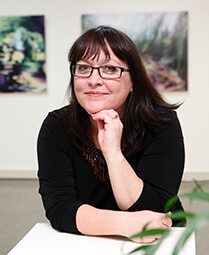The Artists Business Lounge
Art Business Coaching for Visual Artists
5 Proven Steps to Reclaim Time for Your Art and Transform Your Creative Life

“I don’t have enough time.” We’ve all said it. Sometimes, it even feels true.
But let’s pause and consider this: could it be less about the time we have and more about the intentional choices we make each day? If you’re ‘too busy,’ do you really want it (whatever it is)? Sometimes, the answer is no—and that’s okay.
The truth is, ‘too busy’ has become a default excuse, and it deserves closer scrutiny if we want to escape the trap of “I don’t have enough time.”
As someone who juggled a corporate career, an exhibiting artist practice, and deep-dived into productivity research (I even wrote a book for artists called Create Your Own Time: A Guide for Visual Artists), I’ve learned a lot about managing time.
Time – artists always want more of it, and quite rightly so. Our creative minds burn with all of the possibilities, and our studios are treasure troves of ideas waiting to be explored.
On top of that, there’s ‘the business’, the admin: updating websites, posting on social media, applying for grants, and so much more.
But our time and how we choose to use it is more in our control than lamenting “I don’t have enough time” would suggest.
Appreciate as your starting point that you will always want more time. As Martin Kippenberger said “A good artist has less time than ideas.”

Why Time Management Matters
It’s not just about doing more; it’s about doing what matters. Being intentional and making choices creates more of a sense of ease, opens you to flow and creates more efficiency meaning you get better outcomes.
There’s a famous quote that resonates deeply with this:
“We overestimate what we can do in a day and underestimate what we can do in a lifetime.”
The good news? You don’t need a lifetime to start making progress. In fact, dedicating just three extra hours a week to your art goals can create a big impact.
Let’s break it down: three hours a week is only 25.7 minutes a day. Less than half an hour.
Five Steps to Reclaim Your Time
Here’s a process to help you identify where your time goes and how to reclaim it. Each step matters, so don’t skip them!
Step 1: Get Super Clear on Your Goals
Clarity is the foundation. Define your specific goals and priorities so you can quickly decide what gets a “Yes,” “No,” or “Not Now.” And no, “I want to be a full-time artist” isn’t specific enough. Instead, try something like, “I want to finish a 10-piece collection for a solo exhibition by December.”
Step 2: Track Your Time
For one week, document everything you do using a time log (a notebook, app, or spreadsheet).
Examples:
Standing in front of the fridge deciding what to snack on
Scrolling social media
Updating your website
Driving your kids around
Watching TV
Creating art
Also, note these two sneaky time-wasters:
Thinking about doing a task but not actually doing it.
Repeating phrases like “I’m too busy” in your head or to others.
Step 3: Review Your Time Log
Take an honest look at how you’re spending your days:
Q: Are you prioritising activities that align with your goals?
Q: How much time are you spending on low-value activities (e.g., endless scrolling)?
Q: Are you putting the needs of others ahead of your own too often, or when you really do have alternatives?
Q: Are you spending time on old habits while neglecting your dreams?
Q: How much time could you free up by eliminating, reducing, outsourcing, or automating certain tasks?
Step 4: Schedule Your Priorities
Once you know what matters, schedule the non-negotiables into your calendar.
Plan your month, week, and day in a way that works for your lifestyle and energy levels. Remember, your schedule is a tool to support you, not something to overwhelm you.
Step 5: Reduce, Outsource, or Automate
Anything that didn’t make it onto your schedule? Decide how to deal with it:
Eliminate unnecessary tasks.
Delegate or outsource tasks where possible.
Use tools or systems to automate repetitive work (e.g., scheduling social media posts).
By now, you’ve likely found at least three hours of time savings. These small, consistent adjustments can yield massive results over time.
Why Three Hours?
Because it’s an achievable number to get you started. If I had said 10 would you still be here reading? Possibly not.
Yet three hours a week is enough to:
Draft an exhibition proposal.
Start a new artwork.
Tackle a month of marketing content
Build momentum on a long-term project and even finish a short-term project.
What could you achieve in three extra hours a week?
Now imagine – what you could achieve in a year filled with weeks with three extra hours dedicated to your art goals?
Your Next Step
Reclaiming your time isn’t just about fitting more into your day. It’s about creating space for what truly matters. Start small: track your time, find your three hours, and commit to your goals.
Some Important Caveats
While three hours a week can make a significant difference, you can’t achieve big goals if you ONLY spend three hours in total on your art goals, so here are the caveats:
- – I assume you already do some kind of art business admin e.g. socials, websites, writing applications. Some of this time will be about doing those tasks more efficiently, not adding new work.
- – If you do no art business at all – nada, zero, zilch – and are simply ignoring it, you will need to build in more time. Sorry, I am not a magician.
- – If you don’t spend any time making your art, you are going to need some more time for that – you can’t achieve art goals without making art no matter how slick your systems are. #truth
- – Some tasks, like setting up automated systems, might require more time upfront but will save you hours in the long run.
- – You can choose how to allocate your time: clump it together for deep focus or spread it out across your week.
Take It Further with the Success System Program
If you’re ready to do more with your time, the Success System Program is here to help. In as little as three hours a week, you can:
Attend 1-hour coaching or Q&A calls (alternating weeks) + Dedicate 1 hour to course content + Use the third hour to implement what you learn, connect with other artists, or dive deeper into resources.
See? Just three extra hours a week more than you spend today.
Real Results from Real Artists
Here’s what some of our participants have shared:
“I find the ongoing support from Amanda and the rest of the participants in the lounge via regular Zoom meetings fun, very encouraging, and it keeps me motivated. I have learned skills to help with my mindset, setting goals, prioritising what’s important, creating new habits, and learning new technologies.” – Rachael Lee
“I scheduled six weeks of social posts in one day using what I learned from the program.” – Peter Brook
Imagine what you could achieve with the right tools, support, and focus. If you’re ready to take your career to the next level, join the Success System Program today. The program is flexible, with calls available on replay and content accessible 24/7. Click below to learn more and make your art career dreams a reality.


